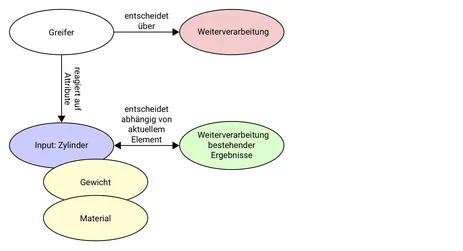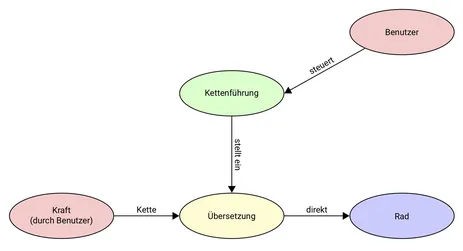Subject-specific mental models in the engineering sciences

Project "MeMoMa"
Project MeMoMa is a long-term collaborative project between the TUM School of Education and the Faculty of Mechanical Engineering. We investigate the interaction between different cognitive and affective characteristics of students with the way they imagine complex machines.
In doing so, we are interested in questions such as: How can subject-specific mental models be efficiently captured in engineering? What are key prerequisites for elaborate conceptions of complex machines? Which characteristics as well as specific conceptions develop in the course of the respective studies? Do the conceptions of experts from different disciplines differ? Do the conceptions of experts and novices differ?
Project team
Scientists from different disciplines are working together on the project. At the TUM School of Education, the Heinz Nixdorf Endowed Chair for Didactics of Mathematics is involved in the cooperation, at the Faculty of Mechanical Engineering the Chair for Automation and Information Systems. If you have any questions about the project, please contact us by mail.
TUM School of Education
- Sarah Scheuerer
- Dr. Sarah Hofer
- Dr. Frank Reinhold
- Prof. Dr. Kristina Reiss
Chair of Automation and Information Systems
- Frieder Loch
- Prof. Dr. Birgit Vogel-Heuser
Milestone 1: Cognitive person characteristics
We record various cognitive personal characteristics of first-year students. These include modeling problems close to everyday life, solving verbal analogies, arithmetic, or spatial imagination. We want to investigate which cognitive traits are related to which mental models of machines, within different study programs and across study programs.
Milestone 2: Mental models (Interviews)
Interviews with students as well as experts of different (mainly engineering/scientific) disciplines were conducted. The goal was to derive dimensions that typically characterize mental models of machines. In these interviews, participants were asked to describe two machines (a bicycle circuit and a more complex sorting machine) in their own words as well as to visualize their model of the respective machine (see figures). Ten dimensions could be derived from the visualizations and the verbalized thoughts of the participants.


Milestone 3: Mental models (written)
A combination of forced-choice and semi-open-ended tasks is designed to provide an efficient measurement of these ten dimensions using an approximately 30-minute test. This test is currently being administered to the original group of first-year students from various disciplines.
Milestone 4: Data analysis
Following the second written survey, the data will be compiled and analyzed. The goal is to identify groups of people who have similar mental models of machines. Further, it will be investigated whether these groups of people are (1) distributed differently in different study programs and (2) whether certain cognitive characteristics are related to the way people think about machines.
Milestone 5: Further questions
In the long term, further questions based on the results of this study are planned. These include the question of whether (1) certain mental models can be increasingly found among experts in individual disciplines, whether (2) the way in which people think about machines changes during their studies, and (3) how such a development can be positively influenced during a university education.
Publications
Reinhold, F., Hofer, S., Berkowitz, M., Strohmaier, A., Scheuerer, S., Loch, F., Vogel-Heuser, B. & Reiss, K. (2020). The Role of Spatial, Verbal, Numerical, and General Reasoning Abilities in Complex Word Problem Solving for Young Female and Male Adults. Mathematics Education Research Journal, 32, 189–211. https://doi.org/10.1007/s13394-020-00331-0
Scheuerer, S., Reinhold, F., Hofer, S. & Reiss, K. (2020). Studieneingangsvoraussetzungen von Studierenden des Gymnasiallehramts Mathematik – Erste Ergebnisse eines Projekts zur Verbesserung der universitären Ausbildung. In A. Frank, S. Krauss & K. Binder (Hrsg.), Beiträge zum Mathematikunterricht 2019 (S. 689–692). Münster: WTM-Verlag. http://doi.org/10.17877/DE290R-20595
Vogel-Heuser, B., Loch, F., Hofer, S., Neumann, E.-M., Reinhold, F., Scheuerer, S. & Reiss, K. (2019). Analyzing Students’ Mental Models of Technical Systems. In Proceedings of the 17th IEEE Industrial Conference on Industrial Informatics (INDIN) (Vol. 1, S. 1119–1125). IEEE. http://doi.org/10.1109/INDIN41052.2019.8972071
